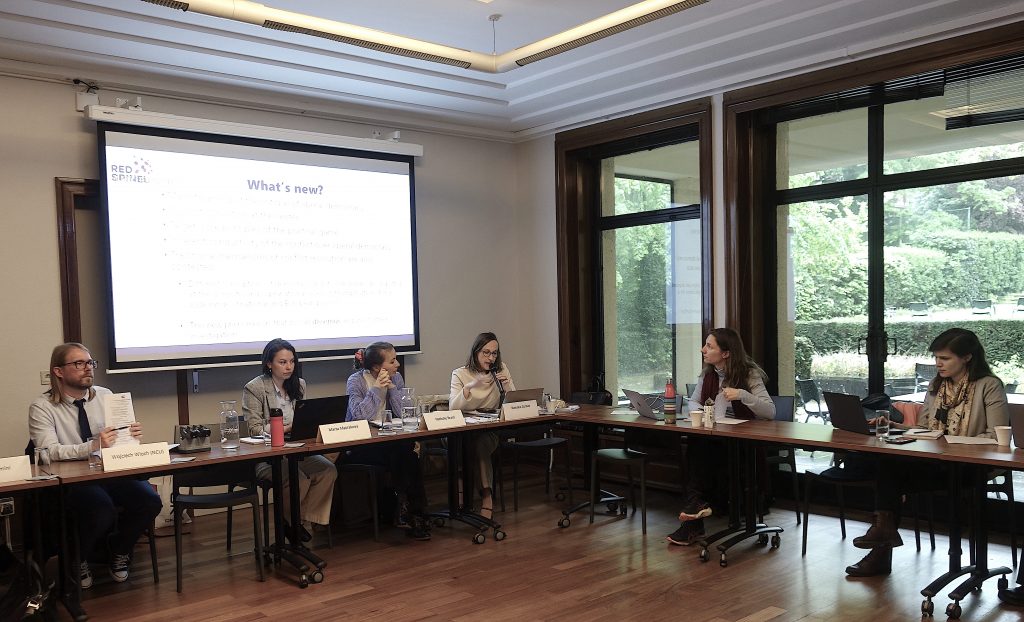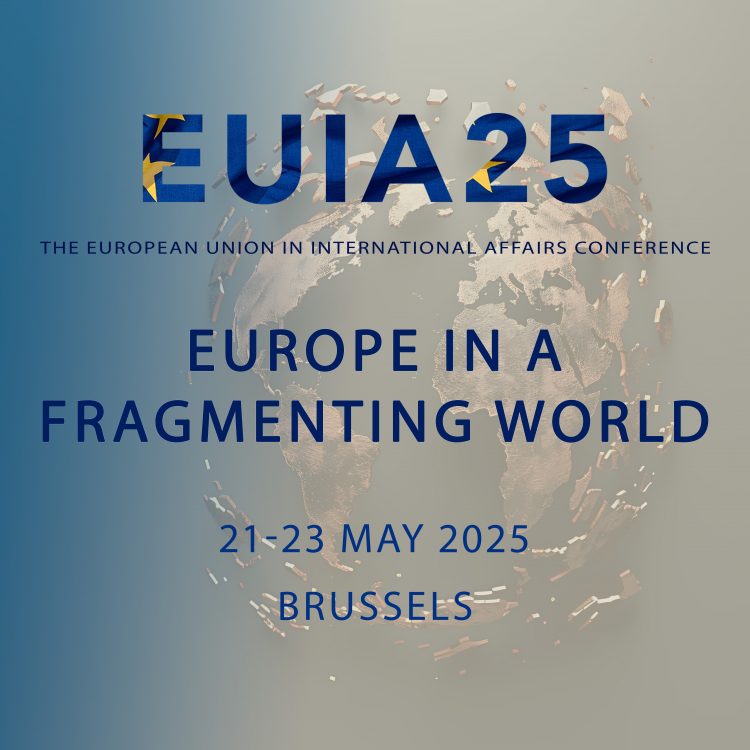Are we at a turning point for liberal democracy? Professor Ramona Coman’s (ULB) question opened a thought-provoking exercise to conceptualise dissensus and to situate it in the current academic debates.
RED-SPINEL partners convened in Brussels on May 12th, 2023, for a day-long closed workshop on “Conceptualising changes to EU policy instruments in the face of mounting dissensus”, organised as part of the project’s WP1 on “Theorising Dissensus on Liberal Democracy in the 21st Century”.
RED-SPINEL stands for ‘Respond to Emerging Dissensus: SuPranational Instruments and Norms of European Liberal democracy’. This interdisciplinary and intersectoral Research project brings together 11 partner organisations from 8 European countries. Launched in October 2022, it will seek, in the next years, to analyse the changing nature of dissensus surrounding liberal democracy and its implications for EU supranational policy instruments.
“Our objective is to see how the confrontation of different visions on democracy and alternative models can lead to its refoundation, its maintenance as it is or its replacement”.Professor Ramona Coman, IEE-ULB
Theoretical reflections on the concept of dissensus
After the series of consecutive crises, the rise of populisms and of undemocratic liberalism has followed. And with it, the dismantlement of core pillars of liberal democracy (autocratisation) and the erosion of democratic institutions, norms and values, Prof. Coman explained in the opening panel.
For dissensus to happen, said Professor Nathalie Brack (ULB), liberal democracy needs to be frequently discussed and contested by a wide range of political actors in public debates, leading to the formation of diverging preferences and public mobilisation.
Professor Wojcieh Wloch (NCU) presented his first reflections on the concept of dissensus in political theory, focusing on dissensus and the dialectic of democracy. Some of the questions raised during his talk included:
- Is the aim of politics to achieve a state of consensus, or is the tension between dissensus and consensus a permanent feature of the political?
- Is the (possible) aim of political institutions to weaken the destructiveness of political dissensus?
When digging into the concept of dissensus driven by external competition to the EU, Professors Luca Tomini (ULB) and Seda Gürkan (ULB) shared a “tentative” typology of dissensus that places the concept as normative or disruptive at the international level and as anti-liberal to authoritarian at the local level.
Researcher Marta Matrakova (ULB) explained the circular dynamic and linkages between international and domestic actors of dissensus. Her first investigations show how internal dissensus within states in the neighbourhood is driven by domestic autocratic and antiliberal actors while there is also international dissensus and competition for exerting influence on states in the neighbourhood. In their relationship, they feed each other.
Discover the RED-SPINEL research project by visiting its website.
Institutional actors of dissensus
Professor Cristina Fasone (LUISS) discussed her work-in-progress on Dissensus and consensus within and between the Parliaments of the EU, highlighting that “the rise of ‘constraining dissensus’ post-Maastricht12 and the spreading of Euroscepticism over the last three decades have contributed to increasing the rate of dissensus inside the Parliaments of the EU and, depending on the level of fragmentation of the political system, might have made the reaching of a political compromise in Parliament more difficult”.
For professor Fasone, dissensus often comes up along party lines, more than institutional ones “and in the past national oppositions have even been overrepresented in some national parliamentary delegations”. Balance of power, she added, depends on competence and policy area. What if the sharing of common fundamental values and the role of the opposition are dismantled from within? she asked.
Looking at the Polish case, Professor Maciej Serowaniec (NCU) focused his intervention on Constitutional Dissensus: Constitutional Deconstruction or New Constitutionalism? In his working paper, Professor Serowaniec analyses the constitutional views characteristic of the process involving the amendment of the existing Constitution through ordinary laws and the arbitrary change of the practice of its application, referred to as the ‘good change’, initiated in 2015.
A “systemic crisis” has ensued “by replacing the constitutionalism inherent in a democratic rule of law, which presupposes the limitation of power by law, with constitutional decisionism, which reflects the principle of the primacy of politics over law”, said professor Serowaniec.
Finally, Professor Christina Eckes (UvA), shared her first insights on the topic Strategic Climate Litigation in Europe: When does Disagreement become Dissensus? She is exploring the role of civil disobedience as “constructive dissensus” in our societies and the role the law plays in dealing with ‘illegal’ forms of demonstration for climate.
Political and social actors of dissensus
Studying the actors of dissensus and mapping them is part of the objectives of the RED-SPINEL research project. Political parties have been identified as a major actor in the area, and during our recent event, Professor Sergiu Miscoiu (UBB), identified four main areas of “hard dissensus” in his analysis of political parties at national and European levels:
- The legitimacy of decision-makers
- The homogeneity and uniformity of preferences in society
- The promotion of division and polarization
- The tyranny of the majority
For Professor Miscoiu, “the strong embeddedness of political parties in democracy does not mean that there is an ideological consensus among them towards liberal democracy. On the contrary, over time there has been broad contestation of the liberal democratic ideas and ideals”.
Civil society and dissensus
The last discussions included presentations by Camille van Hees and Louise van Schaik (Clingendael) on EU think tanks: advocates for Europe or critical voices?
Dana Dolghin (PATRIR)on narrative on dissensus in the public sphere and cultural actors and finally a report on the Rule of law instruments of the EU and Member States presented by Marta Ballesteros and her team (Milieu).




